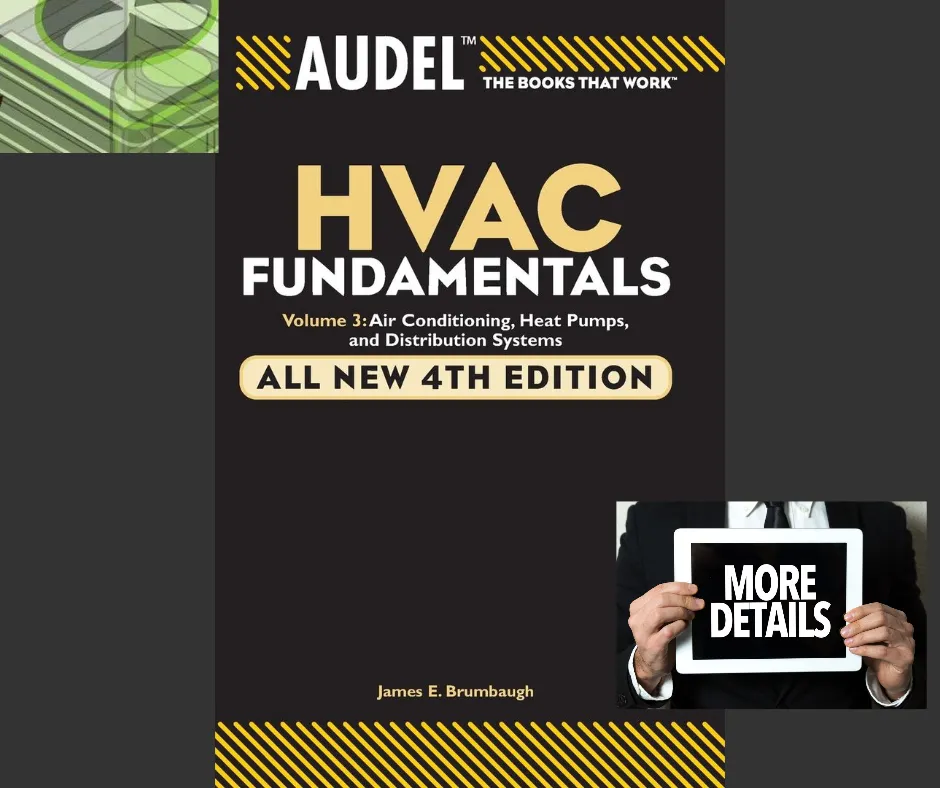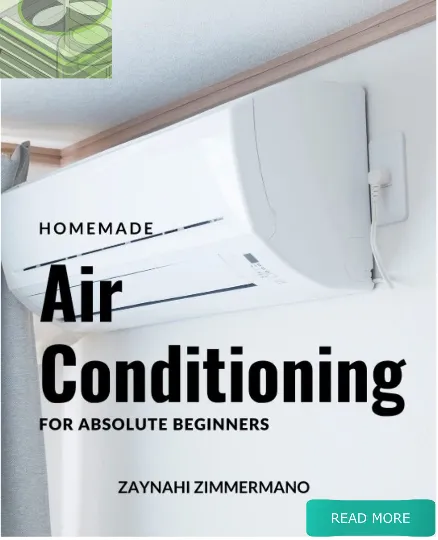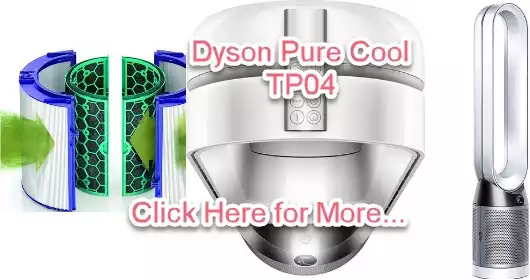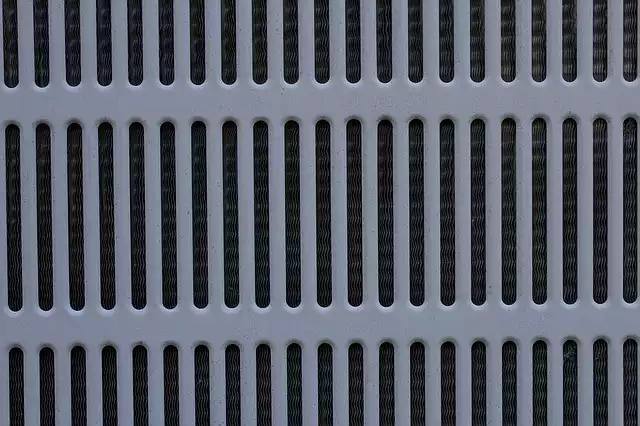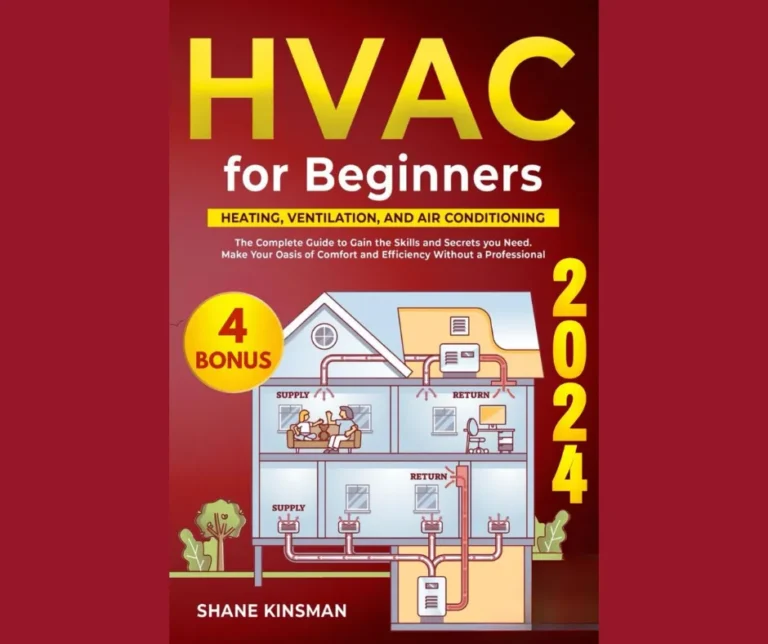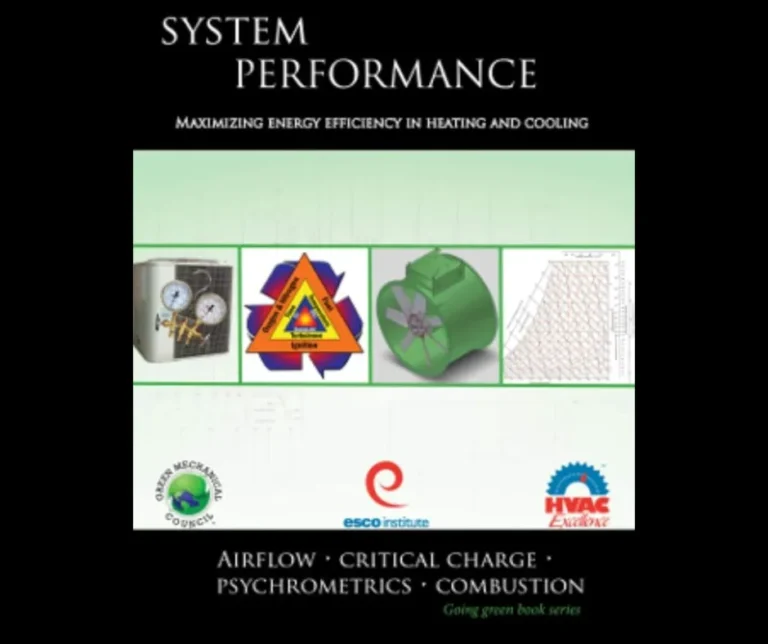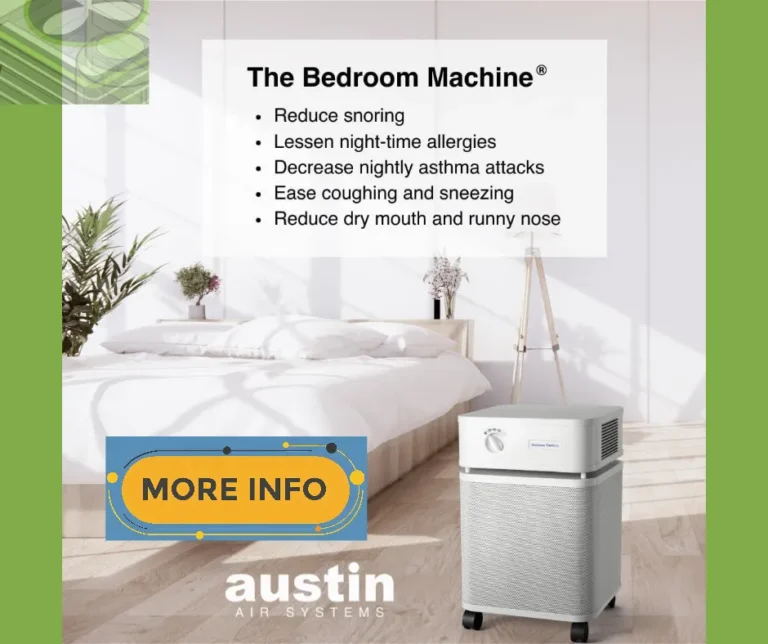Essential HVAC Fundamentals
In the modern world, we often take for granted the comfort of our indoor environments, but behind that comfort lies a complex network of technology known as HVAC.
HVAC, which stands for heating, ventilation, and air conditioning, plays a critical role in maintaining optimal indoor air quality and temperature throughout the seasons.
Understanding HVAC systems goes beyond merely enjoying a comfortable space; it encompasses the knowledge of their vital components, types, and the environmental impacts associated with their operation.
From the refrigerant that cools the air to the ductwork that channels it throughout a building, each part is essential for efficiency and effectiveness.
This article dives deep into essential HVAC fundamentals, covering the significance of these systems, their core components, and how to select and maintain them for optimal performance.
Whether you are a homeowner, a business owner, or simply curious about how HVAC works, this guide offers valuable insights to enhance your understanding and improve your indoor climate.
Table of Contents Essential HVAC Fundamentals
What is HVAC?
HVAC stands for Heating, Ventilation, and Air Conditioning.
It represents systems that control temperature, humidity, and air quality inside a building.
The main components include a furnace, air conditioner, and ductwork.
These elements work together to manage indoor environments efficiently.
Key Components of HVAC:
| Component | Function |
| Furnace | Heats the air |
| Air Conditioner | Cools and dehumidifies air |
| Ductwork | Circulates air throughout the building |
The ventilation part of HVAC is crucial.
It helps in proper air circulation using mechanical systems.
These systems filter and condition the air before it re-enters the living space.
This ensures a steady and clean indoor environment.
Effective HVAC systems operate in a closed loop.
They continually draw in, treat, and recirculate indoor air.
This provides consistent thermal comfort while maintaining indoor air quality.
Understanding HVAC fundamentals helps homeowners manage their systems better.
This minimizes utility costs and reduces the need for costly repairs.
Regular maintenance is essential for peak efficiency and reliability, especially in extreme conditions like the dead of winter.
Importance of HVAC Systems
HVAC systems are crucial for keeping indoor spaces comfortable and healthy.
They improve indoor air quality by filtering out contaminants and allergens.
This helps to reduce respiratory issues and allergic reactions.
A well-functioning HVAC system controls the indoor temperature, making it ideal for any activity.
Consistent temperature levels enhance comfort and even boost productivity in various indoor environments.
Humidity regulation is another important function of HVAC systems.
Proper moisture levels protect our health and ensure comfort indoors.
The system forms a closed loop where air is drawn in, conditioned—either heated or cooled—and then circulated.
This process is vital for a pleasant living environment.
The ventilation aspect of HVAC systems is essential for managing humidity, moisture, and odors.
This enhances the overall quality of the indoor atmosphere.
Key Benefits of HVAC Systems:
- Improved Indoor Air Quality: Removes pollutants and allergens.
- Temperature Control: Maintains comfort and boosts productivity.
- Humidity Regulation: Ensures health and comfort.
- Effective Ventilation: Balances humidity and eliminates odors.
In summary, HVAC systems play an integral role in creating a stable, comfortable, and healthy indoor environment.
Key Components of HVAC Systems
HVAC systems are composed of three main parts: heating, ventilation, and air conditioning.
These components ensure thermal comfort and good air quality in buildings.
Refrigerant
Refrigerant is a key chemical in liquid form that plays a crucial role in cooling.
It absorbs heat as it evaporates, creating a cooling effect.
Once it has absorbed the heat, the refrigerant is compressed back into a liquid.
This process expels the heat outdoors.
Refrigerant is essential for efficient HVAC operation, impacting indoor air quality and comfort levels.
Understanding its function helps maintain temperature control and manage humidity indoors.
Evaporator Coils
Evaporator coils are vital to the cooling process in HVAC systems.
They are responsible for absorbing heat from indoor air.
These coils, made of copper tubing, contain refrigerant that draws out heat.
In ductless mini-splits, the indoor unit houses evaporator coils for direct cooling.
Proper maintenance of these coils is key to effective performance.
Their design also enhances the efficiency of systems, including newer tech like mini-splits.
Compressor
The compressor plays a central role in an HVAC system.
It manages the refrigerant gas after it absorbs heat inside the evaporator coils.
This component boosts both the pressure and temperature of the refrigerant gas.
By doing so, it prepares the gas for the next phase of cooling.
The refrigerant enters as a low-pressure gas but leaves as high-pressure, ready for the condenser.
The compressor ensures smooth refrigerant movement, promoting effective cooling.
Ductwork
Ductwork is a network of pipes that distribute air throughout the home.
It ensures efficient air circulation and energy use.
Regular inspection of ductwork is crucial for optimal airflow.
This network circulates air by connecting various HVAC system components.
Ducts are also pivotal in returning air for reconditioning and redistribution.
Well-designed and maintained ductwork significantly boosts HVAC system performance.
Summary of Key Components:
| Component | Function |
| Refrigerant | Absorbs heat, facilitates cooling |
| Evaporator Coils | Absorb heat, cool air |
| Compressor | Increases refrigerant pressure, aids cooling |
| Ductwork | Distributes and circulates air efficiently |
Understanding these components is vital for designing and maintaining effective HVAC solutions.
Types of HVAC Systems
Heating, ventilation, and air conditioning (HVAC) systems are crucial for maintaining a comfortable indoor environment.
They’re found in homes, offices, and buildings.
Let’s explore the different types of HVAC systems that cater to varying needs and spaces.
Centralized Heating and Cooling Systems
Centralized systems, often called “central air,” distribute warm and cool air throughout a building.
They include an indoor unit with a furnace and evaporator coils and an outdoor unit with a compressor and condenser.
These systems use ductwork to circulate air, ensuring even temperature control.
Key Features:
- Central source for heating and cooling
- Distribution system like ducts or pipes
- Control unit (thermostat) for temperature regulation
- Often used in large buildings or commercial settings
Split Systems
Split systems are popular in residential settings.
They consist of two parts: a heater indoors and an air conditioning unit outdoors.
These systems rely on compressors, coils, and refrigerants to produce cool air.
Advantages:
- Single thermostat for easy control
- Hybrid split systems use both gas and electric power for energy efficiency
- Ideal for reducing operational costs in moderate climates
Ductless Mini-Splits
Ductless mini-splits offer a flexible solution by not using ducts.
With an outdoor condenser unit and an indoor unit for evaporator coils and a fan, they directly cool or heat specific rooms.
Benefits:
- Ideal for homes with limited space
- Reduces energy costs
- Great for multifamily homes, offices, or hotels
- Less effective in colder climates
Geothermal HVAC Systems
Geothermal systems use the earth’s stable temperature for efficient heating and cooling.
They utilize underground pipes to exchange heat with the ground, offering a modern and sustainable solution.
Highlights:
- Efficient due to the use of renewable energy
- Lowers energy consumption significantly
- Environmentally friendly design
By understanding these HVAC systems, you can choose the best option for your space and energy needs.
Regular maintenance is key to keeping these systems running at peak efficiency, ensuring a comfortable indoor temperature year-round.
Operational Principles of HVAC Systems
HVAC systems operate by moving heat from one place to another to maintain a stable indoor temperature.
The process depends on core principles of heat transfer: conduction, convection, and radiation.
These mechanisms ensure your indoor environment stays comfortable by regulating temperature efficiently.
The primary components of an HVAC system include:
- Warm/Cool Air Source: This generates the desired temperature.
- Distribution System: Ducts or pipes that circulate air or fluids.
- Control Unit: A thermostat that manages and adjusts indoor temperature.
Understanding thermodynamics is crucial for efficient heating and cooling.
Thermodynamics dictates how air and fluids behave, enabling effective energy transfer throughout the system.
Additionally, fluid flow principles play a significant role in system performance.
Factors like airflow and pressure are important for peak efficiency, especially in limited spaces or large commercial buildings.
Routine and regular maintenance of HVAC components ensures they run at peak efficiency, which is essential during moderate temperatures in the fall or the dead of winter.
Whether you have a central system or a newer, more energy-efficient system, maintaining HVAC equipment is key to a comfortable and energy-efficient indoor climate.
Proper HVAC System Sizing
Proper HVAC system sizing is crucial for achieving peak efficiency and comfort.
Key factors include building size, insulation quality, window area, and local climate.
Industry experts recommend using methods like Manual J for precise residential load calculations.
This helps avoid common sizing problems.
Why Proper Sizing Matters:
- Oversized Systems: Can lead to short cycling, lower efficiency, and higher energy costs.
- Undersized Systems: Struggle to maintain comfort, especially during extreme weather conditions.
Steps for Accurate Sizing:
- Calculate Heat Loss and Gain: Determine how much heating and cooling the building needs.
- Select Appropriate Equipment: Choose air conditioning and heating units that match the calculated load.
- Design Duct Runs: Ensure ductwork is laid out to maximize performance.
Factors to Consider:
| Factor | Importance |
| Building Size | Determines overall load |
| Insulation | Affects heat retention/loss |
| Window Area | Impacts heat gain/loss |
| Local Climate | Guides equipment selection |
Properly sizing your HVAC system leads to better indoor air quality, efficient heating, and stable indoor temperatures.
It is essential for both residential and commercial buildings to maintain comfort and control energy costs.
Selecting the Right HVAC System
Selecting the right HVAC system is crucial for maintaining comfort and efficiency in your home or business.
To start, consider the climate zone and the size and layout of the building.
Properly sizing your HVAC system ensures peak efficiency.
An undersized system may struggle during extreme weather, while an oversized one could short cycle and waste energy.
Key Considerations:
- Building Size and Insulation: Larger buildings need larger systems.
- Good insulation helps maintain stable indoor temperatures.
- Energy Efficiency Ratings: Choose a system with high ratings.
- Newer, more energy-efficient systems often include smart thermostats for enhanced control.
- Initial and Long-term Costs: Weigh installation costs against potential long-term savings from efficient heating and cooling.
- Technology and Features: Consider features like heat pumps for moderate temperatures and air conditioning systems that manage both heating and cooling.
Installation Tips:
- Calculate heat loss and gain.
- Design efficient duct runs, following ACCA guidelines.
- Opt for regular maintenance to ensure the system performs well over the years.
Proper selection and routine maintenance ensure a comfortable indoor environment, even in the dead of winter or the heat of summer.
Environmental Impact of HVAC Systems
HVAC systems play a vital role in managing indoor air quality and temperature.
Investing in energy-efficient HVAC systems contributes significantly to reducing carbon footprints.
For instance, a single ENERGY STAR-certified unit can prevent around 1,700 pounds of greenhouse gas emissions annually.
This benefit not only aids environmental conservation but also results in lower energy bills for users.
Modern HVAC technologies come with smart features that optimize energy consumption.
They help maintain stable temperatures and improve the overall indoor environment.
Advanced systems also use eco-friendly refrigerants, further minimizing their environmental impact.
Benefits of Energy-Efficient HVAC Systems:
- Reduced greenhouse gas emissions
- Lower energy costs
- Improved indoor air quality
- Eco-friendly refrigerants
By adopting these advanced solutions, both residential and commercial buildings can achieve peak efficiency even in the dead of winter.
It’s also important to conduct regular and routine maintenance on the heating and air conditioning equipment.
This care ensures prolonged efficient operation and sustained indoor comfort.
Embracing these sustainable HVAC practices is a step forward in moderating the environmental impact while enhancing living and working spaces.
Sustainable HVAC Practices
Sustainable HVAC practices focus on efficiency and environmental impact.
By using renewable energy sources like solar and geothermal, HVAC systems can run with less reliance on fossil fuels.
Here’s how to enhance sustainability:
- Heat Recovery Systems: Capture and reuse waste heat to boost energy efficiency.
- Building Design: Use passive heating and cooling to lower HVAC demand.
- Regular Maintenance: Ensure peak efficiency and system longevity with routine upkeep.
The industry is also shifting to eco-friendly refrigerants that have a lower impact on global warming.
This means saying goodbye to substances that harm the ozone layer.
Here’s a quick look at sustainable features:
| Feature | Benefit |
| Renewable Energy Sources | Reduces fossil fuel use |
| Heat Recovery Systems | Recaptures and reuses waste heat |
| Eco-Friendly Refrigerants | Lowers global warming potential |
| Passive Building Design | Reduces heating and cooling needs |
| Regular Maintenance | Maintains efficiency and longevity |
These measures together help in creating a more sustainable indoor environment.
By embracing these practices, both commercial buildings and homes can achieve a stable temperature efficiently.
Sustainable HVAC is the way forward.
Cost Factors in HVAC Design and Installation
When designing an HVAC system, several cost factors come into play.
A complex building shape increases expenses due to the need for more intricate components.
Larger buildings also require more materials, driving up costs compared to smaller facilities.
Choosing an ENERGY STAR® HVAC system can lead to savings on monthly electricity bills.
This demonstrates the balance between upfront costs and long-term value.
Here’s a breakdown of key cost factors:
- Building Design: Complex shapes = higher costs.
- Size of Facility: Larger spaces = more materials.
- System Features: Advanced models cost more.
- Seasonal Maintenance: Regular checks prevent costly repairs.
- Brand and Model: Prices vary like car shopping.
| Factor | Impact on Cost |
| Building Design | Increases with complexity |
| Facility Size | Larger size = higher cost |
| System Features | Advanced features add cost |
| Maintenance | Prevents expensive repairs |
| Brand & Model | Fluctuates like vehicle pricing |
Routine maintenance is essential in preventing breakdowns and ensuring efficient performance.
In essence, investing in a well-designed HVAC system helps maintain a stable indoor environment while balancing costs effectively.
Importance of Professional HVAC Services
Professional HVAC services play a crucial role in maintaining a stable indoor environment and efficient heating.
Trained technicians use their skills to handle hazardous materials safely and ensure effective service delivery.
Comprehensive HVAC training covers essential areas like system diagnostics, wiring, refrigeration, and indoor air quality.
This knowledge is important for both homeowners and commercial buildings.
Routine maintenance is vital for optimal HVAC performance.
Regular maintenance, like changing dirty filters and checking for refrigerant leaks, helps keep air conditioning equipment running at peak efficiency.
This prevents common issues that can disrupt the indoor temperature and comfort in living spaces.
Preventative maintenance practices are key to identifying potential system breakdowns.
This proactive approach ensures problems are solved before escalating, saving time and money.
Experienced instructors provide hands-on training to equip students with necessary skills for addressing issues with indoor and outdoor units.
Overall, professional HVAC services ensure control systems work effectively, improving the efficiency of air conditioning systems and heat pumps.
A newer, more energy-efficient system can provide efficient heating through principles behind heating and ventilation equipment, even in limited spaces.
Proper technician training ensures safe and quality action for heating and cooling.
Benefits of Professional HVAC Services
| Benefit | Description |
| Optimal Performance | Ensures systems run efficiently and extend lifespan |
| Preventative Approach | Identifies and fixes issues before major problems |
| Enhanced Indoor Quality | Maintains stable temperatures and air quality |
Hiring expert HVAC technicians ensures indoor comfort, energy efficiency, and system reliability.
Training for HVAC Technicians
Training for HVAC technicians blends hands-on experience with technical knowledge.
These programs are vital for anyone pursuing a career in the field.
Effective HVAC technicians need strong diagnostic and troubleshooting skills.
They help maintain system efficiency and resolve issues quickly.
Here’s a brief outline of what these programs cover:
Fundamental Knowledge
- Heating, cooling, and ventilation systems
- Principles behind heating
- Efficient heating and cooling
Practical Skills
- Regular and routine maintenance
- Handling air conditioning and ventilation equipment
- Emergency readiness
Customer Impact
- Knowledge to boost customer satisfaction
- Techniques to enhance repeat sales and positive reviews
Emergency protocols form a critical part of training.
For example, knowing to turn off main circuit breakers during a water leak is essential for safety.
| Training Area | Focus |
| Fundamental Knowledge | System diagnostics |
| Practical Skills | Maintenance techniques |
| Customer Impact | Service quality |
A well-prepared technician doesn’t just fix issues; they ensure comfort through consistent indoor air quality and stable temperature.
This comprehensive approach contributes to efficient systems, enhancing overall indoor environments, whether in homes or commercial buildings.
Enhancing System Efficiency and Performance
Enhancing the efficiency and performance of HVAC systems is crucial for comfort and cost savings.
Modern HVAC systems are designed to be energy-efficient.
This design helps control operational expenses and reduce environmental impacts.
Opting for ENERGY STAR® units can significantly cut down on greenhouse gas emissions, preventing up to 1,700 pounds of emissions annually per unit.
Additionally, these systems can lower monthly cooling costs by up to 30% compared to non-efficient models.
Tips for Optimal Performance
- Regular Maintenance:
- Replace air filters regularly.
- Inspect and clean ductwork.
- Precise Control:
- HVAC systems offer precise temperature and humidity control, essential for comfort and productivity in indoor environments.
- Installation and Upgrades:
- Consider newer, more energy-efficient systems for improved performance.
The investment in regular maintenance and more efficient systems not only enhances performance but also ensures stability and comfort in the indoor environment.
Additionally, ENERGY STAR units contribute to a more sustainable future by reducing your carbon footprint.

